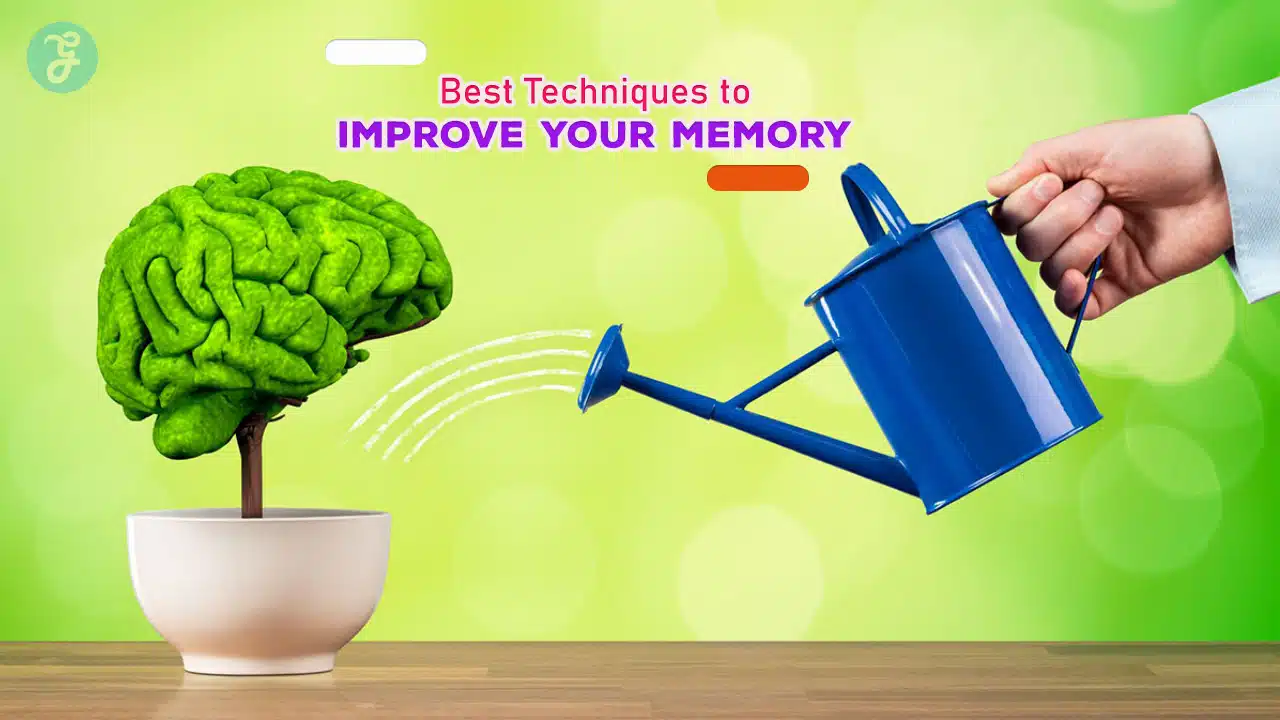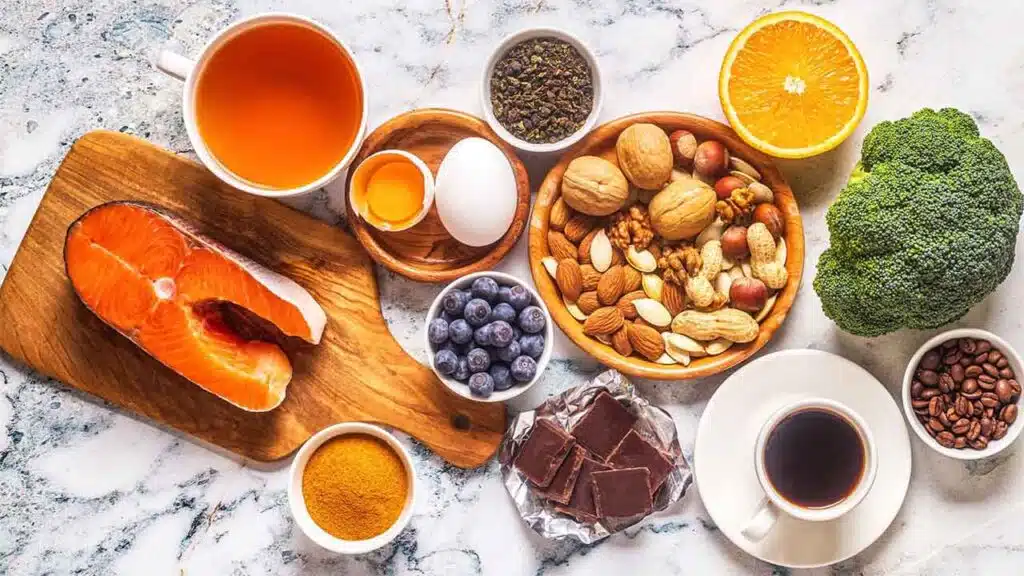Memory is one of the most crucial cognitive functions that impacts every aspect of our lives—from remembering names and dates to retaining critical information for work or school.
It serves as the foundation for learning, reasoning, and adapting to new situations. However, like any skill, memory can weaken without proper care and training.
The good news is that, with the right techniques, you can significantly enhance your memory, whether you’re a student, a professional, or someone looking to stave off age-related memory decline.
In this detailed guide, we explore the 10 proven techniques to boost your memory.
These strategies are grounded in science and are designed to enhance cognitive performance, improve recall, and make learning easier and more efficient.
1. Practice Mindfulness and Meditation
Mindfulness, the practice of staying present and focused on the moment, can enhance various cognitive functions, including memory.
By reducing distractions and stress, mindfulness helps improve working memory—the brain’s ability to hold and manipulate information over short periods.
It has been proven that the practice of mindfulness can increase gray matter in the hippocampus, which is essential for memory.
- Mindful Awareness:
Becoming more aware of your surroundings, thoughts, and emotions helps enhance mental clarity.
Studies show that individuals who practice mindfulness regularly exhibit better memory retention and reduced mental clutter.
- Focused Breathing:
Focused breathing exercises involve sitting quietly and concentrating solely on your breath.
This practice improves focus, reduces distractions, and enhances both short-term and long-term memory capabilities.
Benefits of Meditation for Memory
Meditation, especially mindfulness meditation, has been shown to strengthen neural connections in the brain, particularly in areas associated with memory and learning.
It reduces the brain’s tendency to wander and improves attention span, which directly impacts how well we encode and retrieve information.
- Improving Attention Span:
One of the main ways meditation helps with memory is by improving your attention span.
Enhanced focus leads to better memory formation since you’re more likely to encode details deeply.
- Reducing Stress:
Meditation reduces cortisol levels—a hormone released in response to stress—that can impair memory functions when present in high amounts over time.
Pro Tip
Start by incorporating 5–10 minutes of mindfulness meditation into your daily routine.
Gradually extend this time, and consider using guided meditation apps like Calm, Insight Timer, or Headspace for support.
You’ll not only improve your memory but also gain mental clarity and emotional stability.
2. Get Enough Quality Sleep
Sleep is not just restorative; it’s essential for memory consolidation—the process by which short-term memories are transformed into long-term ones.
During deep sleep stages, the brain replays recent experiences, strengthens synaptic connections, and organizes information into meaningful patterns that make future recall easier.
- REM Sleep and Memory Formation:
Rapid Eye Movement (REM) sleep, often associated with dreaming, is critical for both procedural memory (skills) and declarative memory (facts and knowledge).
Research shows that individuals deprived of REM sleep show poorer performance on memory tests.
- The Power of Naps: Short naps, even lasting just 10-20 minutes, can significantly improve working memory. In fact, a study published in Nature Neuroscience found that napping can enhance memory retention by preventing memory decay.
Improving Sleep Quality
It’s not just the duration of sleep that matters but also its quality. Poor sleep habits, such as frequent interruptions or inadequate deep sleep, can reduce the effectiveness of memory consolidation.
- Sleep Hygiene:
Create an environment conducive to sleep by keeping your bedroom dark, cool, and quiet. Reduce blue light exposure from screens at least an hour before bed and establish a consistent bedtime routine.
- Avoid Stimulants:
Minimize caffeine and heavy meals late in the day, and ensure you have sufficient wind-down time before bed to relax your mind.
Pro Tip
Aim for at least 7–9 hours of uninterrupted sleep each night. If possible, consider taking short naps after learning new information to improve memory consolidation.
3. Engage in Physical Exercise
Physical exercise boosts overall brain function and specifically enhances memory by increasing the supply of oxygen-rich blood to the brain.
Exercise stimulates the production of proteins that nurture brain cells and promote the formation of new connections between neurons.
This, in turn, helps enhance neuroplasticity—the brain’s ability to adapt and form new pathways.
- Aerobic Exercise:
Activities such as jogging, swimming, and cycling improve cardiovascular health and have a direct positive impact on hippocampal volume (the part of the brain crucial for memory).
Aerobic exercise also stimulates the release of brain-derived neurotrophic factor (BDNF), which promotes the survival of existing neurons and encourages the growth of new ones.
- Strength Training:
Surprisingly, weightlifting and other forms of strength training can also improve memory.
Resistance training has been found to enhance executive function and episodic memory—your ability to recall past experiences.
Exercise and Age-Related Memory Decline
Regular physical exercise is one of the most effective ways to prevent memory loss and cognitive decline as we age.
Studies show that older adults who engage in regular physical activity are less likely to develop conditions like Alzheimer’s or other forms of dementia.
- Cognitive Protection:
Consistent exercise helps reduce inflammation, decrease insulin resistance, and stimulate the release of growth factors that support the health of brain cells.
Pro Tip
Incorporate 30 minutes of moderate exercise (like brisk walking) or 20 minutes of vigorous exercise (such as running or cycling) at least five days a week.
Adding balance and flexibility exercises, like yoga or tai chi, can also improve brain health by promoting body-mind coordination.
4. Use Mnemonic Devices
Mnemonic devices are memory aids that help simplify complex information into more easily remembered formats.
By creating associations through acronyms, visual imagery, or rhymes, mnemonics make abstract or difficult-to-remember details more accessible.
- Acronyms:
Acronyms are one of the simplest and most widely used mnemonic devices.
For example, to remember the planets in our solar system (Mercury, Venus, Earth, Mars, Jupiter, Saturn, Uranus, Neptune), you can use the acronym “My Very Educated Mother Just Served Us Noodles.
- Rhymes and Chunking:
Rhymes such as “i before e, except after c” can make information stick.
Similarly, chunking involves breaking down large pieces of information into smaller, more manageable units.
For instance, instead of trying to memorize a 10-digit phone number as a whole, divide it into groups: (123) 456-7890.
- The Method of Loci (Memory Palace):
The method of loci is an ancient mnemonic technique where you visualize placing the items you want to remember in specific locations within a familiar place (such as your home).
To retrieve the memories, you mentally “walk” through the space and pick up each piece of information.
How Mnemonics Improve Retention?
Mnemonics work by capitalizing on the brain’s ability to recall vivid imagery, patterns, and sequences.
By associating new information with something already familiar, mnemonics tap into the brain’s associative memory pathways, making recall faster and more reliable.
Pro Tip
Start by using simple acronyms and chunking techniques for daily tasks like remembering passwords, grocery lists, or names.
As you get more comfortable, experiment with more advanced mnemonic strategies, such as the method of loci, to remember complex information like presentations or study material.
5. Focus on Visualization Techniques
Visualization is a powerful technique because the brain processes visual images more efficiently than text or abstract ideas.
By turning words, numbers, or concepts into vivid mental pictures, you create stronger neural connections that help with recall.
- Creating Mental Images:
When learning new material, create a mental image that represents the information.
For example, if you need to remember a word like “tree,” picture a large oak tree with lush green leaves swaying in the wind.
- Dual-Coding Theory:
This theory suggests that when you pair visual information with verbal cues, you’re using two different systems in the brain, making it more likely that the information will be stored and retrieved.
Advanced Visualization Techniques
- Mind Maps:
Mind mapping is a technique that visually organizes information into a tree-like structure.
Each branch represents a topic or idea, with sub-branches that delve into more detail.
This technique works well for complex subjects because it visually represents the relationships between different concepts.
- Storytelling and Visual Association:
You can also associate visual images with a storyline. For example, if you need to remember a list of items, such as bread, milk, and apples, imagine a baker (bread) carrying a milk jug while picking apples in an orchard.
Pro Tip
Combine visualization with mnemonic devices to enhance retention.
For example, if you’re learning a new language, visualize an image for each word you want to memorize.
When revisiting the material, recall the associated visual image to help retrieve the word.
6. Eat Brain-Boosting Foods
The brain relies on specific nutrients to function optimally, and certain foods have been proven to enhance memory, concentration, and cognitive performance.
- Omega-3 Fatty Acids: Omega-3 fatty acids, particularly docosahexaenoic acid (DHA), are essential for brain health.
These fats help maintain the structure of neurons, improve synaptic transmission, and are linked to reduced age-related cognitive decline.
Foods high in omega-3s include fatty fish (salmon, mackerel, sardines), flaxseeds, chia seeds, and walnuts.
- Antioxidant-Rich Foods:
Antioxidants protect the brain from oxidative stress and free radical damage, both of which can impair memory and cognitive function.
Blueberries, dark chocolate, spinach, and green tea are all rich sources of antioxidants that can help support long-term brain health.
- Turmeric and Curcumin:
The active ingredient in turmeric, curcumin, crosses the blood-brain barrier and has been shown to boost memory and stimulate the growth of new neurons.
Regular consumption of turmeric can also reduce inflammation in the brain, which is linked to memory loss.
Hydration and Memory Performance
Staying hydrated is crucial for cognitive function, as dehydration can lead to difficulties with concentration, memory, and even problem-solving.
- Water and Memory:
Even mild dehydration can impair memory. Aim to drink at least 8 glasses of water daily, and increase your intake if you’re physically active or in a hot climate.
Pro Tip
Incorporate more brain-boosting foods into your diet by following a Mediterranean-style eating plan, which emphasizes fresh fruits, vegetables, lean proteins, and healthy fats.
Be mindful of reducing processed foods and refined sugars, which can negatively impact memory and cognitive function.
7. Stay Mentally Active with Cognitive Training
Just like physical exercise keeps your body in shape, mental exercise can keep your brain sharp. Cognitive training involves engaging in challenging activities that stimulate the brain and improve memory, attention, and reasoning abilities.
- Brain Games:
Games like Sudoku, crosswords, chess, and Scrabble are excellent mental workouts.
They challenge your working memory and force you to recall information quickly, which strengthens neural connections.
- Learning a New Skill:
Learning a new language, musical instrument, or even a complex hobby like woodworking or coding stimulates new parts of the brain, enhances neuroplasticity, and strengthens memory.
- Brain-Training Apps:
Apps like Lumosity, Peak, and Elevate offer a range of cognitive exercises designed to improve memory, attention, and problem-solving skills.
These programs adjust their difficulty level based on your performance, ensuring that your brain is constantly challenged.
The Role of Neuroplasticity in Memory
Neuroplasticity refers to the brain’s ability to adapt and reorganize itself by forming new neural connections throughout life.
The more you challenge your brain with new activities, the more you enhance neuroplasticity, which, in turn, improves memory.
- Expanding Cognitive Flexibility:
Cognitive flexibility allows the brain to adapt quickly to new information and solve problems from multiple perspectives.
By learning new skills, you’re improving both cognitive flexibility and memory retention.
Pro Tip
Make cognitive training a regular part of your routine.
Set aside time each day to engage in mentally stimulating activities, such as puzzles, strategy games, or learning a new skill.
The key is consistency, so vary your activities to keep your brain challenged.
8. Use Repetition and Spaced Learning
Repetition is a fundamental technique for moving information from short-term to long-term memory.
By reviewing material multiple times, you strengthen neural pathways, making it easier to recall the information later.
- Active Recall:
Active recall involves retrieving information from memory rather than passively reading or listening to it.
For example, after reading a chapter in a textbook, try to recall the key points without looking at the text. This engages deeper cognitive processes and improves long-term retention.
Spaced Learning: A Scientifically Proven Technique
Spaced learning, or spaced repetition, is one of the most effective ways to improve memory retention.
Rather than cramming all your study material in one session, you review it over increasingly spaced intervals.
- How It Works:
After learning something new, revisit the material after a short delay (e.g., a few hours).
Then, review it again the next day, a week later, and a month later. This technique leverages the “spacing effect,” which shows that people retain information better when it is reviewed periodically rather than all at once.
- Anki and Spaced Repetition Apps:
Apps like Anki, SuperMemo, and Quizlet use spaced repetition algorithms to help you review material at optimal intervals.
These tools are particularly useful for language learners, students, and professionals who need to retain large amounts of information.
Pro Tip
Integrate spaced repetition into your study or work routine by breaking information into smaller chunks and reviewing it at regular intervals.
Use apps like Anki or Quizlet to automate the process and ensure you’re revisiting the material at the optimal time for retention.
9. Manage Stress and Anxiety
Chronic stress and anxiety can wreak havoc on the brain, impairing memory by flooding it with cortisol.
While short-term stress can heighten alertness and improve memory (the “fight or flight” response), prolonged exposure to stress damages the hippocampus—the brain region responsible for converting short-term memories into long-term ones.
- Cortisol and Memory Decline:
Elevated cortisol levels interfere with memory consolidation and make it harder to recall information when needed.
Over time, chronic stress can lead to significant memory impairment and cognitive decline.
- Stress-Induced Distraction:
When stressed, the brain has more difficulty focusing, making it harder to absorb new information. This, in turn, reduces the chances of forming lasting memories.
Effective Stress-Reduction Techniques
There are several ways to manage stress that, in turn, protect and enhance memory.
- Meditation and Deep Breathing:
Meditation and mindful breathing exercises reduce cortisol levels, calm the mind, and improve focus, all of which are necessary for memory consolidation.
- Physical Activity:
Exercise not only boosts memory by increasing blood flow to the brain, but it also releases endorphins, which help counteract the negative effects of stress.
- Journaling and Reflection:
Writing down your thoughts and experiences can help alleviate stress and provide mental clarity.
Journaling before bed is an effective way to unload mental tension and ensure a restful sleep, which further aids memory.
Pro Tip
Identify stress triggers in your life and develop a strategy for managing them, whether through mindfulness exercises, physical activity, or engaging in hobbies.
Reducing stress will significantly improve your memory function and overall well-being.
10. Practice Healthy Habits and Consistency
When it comes to improving memory, the secret lies in consistency.
It’s not enough to use these techniques occasionally—you need to incorporate them into your daily routine to see lasting benefits.
Just as athletes train their bodies regularly, you must train your brain to optimize memory.
- Daily Routine:
Develop a routine that incorporates mindfulness, regular exercise, healthy eating, and cognitive exercises.
By practicing these techniques consistently, you’ll see gradual improvements in memory function.
- Hydration and Diet:
Staying hydrated throughout the day is essential for maintaining focus and cognitive performance.
Drink water regularly and avoid sugary or processed foods that can impair brain function.
Avoid Multitasking for Better Focus
Multitasking divides your attention and weakens your ability to focus, making it harder to form strong memories.
To enhance memory, focus on one task at a time, giving it your full attention.
- The Myth of Multitasking:
Studies show that multitasking reduces efficiency and the quality of memory retention.
When you split your attention between tasks, you reduce your brain’s ability to store and recall information effectively.
- Single-Tasking:
Practice single-tasking by dedicating uninterrupted time to each task. For example, if you’re reading or learning something new, minimize distractions like notifications or background noise to improve retention.
Pro Tip
Create a daily structure that prioritizes brain-healthy habits, such as regular physical activity, a nutrient-rich diet, mental stimulation, and stress reduction.
Consistency in these habits is the key to long-term memory improvement and cognitive longevity.
Takeaways
Improving your memory is a multifaceted process that requires a combination of mental, physical, and lifestyle strategies.
By incorporating these 10 best techniques into your daily life, you can significantly enhance your ability to remember important information, focus better, and perform at a higher cognitive level.
These proven techniques, ranging from practicing mindfulness and eating brain-boosting foods to engaging in regular exercise and repetition, will help you build a stronger memory foundation.
The journey to better memory may take time, but with consistent practice, you’ll notice improvements in both your short-term and long-term memory.
Memory is not just an innate trait—it’s a skill that can be developed and nurtured.
Start applying these methods today, and experience the positive impact they will have on your cognitive function and quality of life.









































